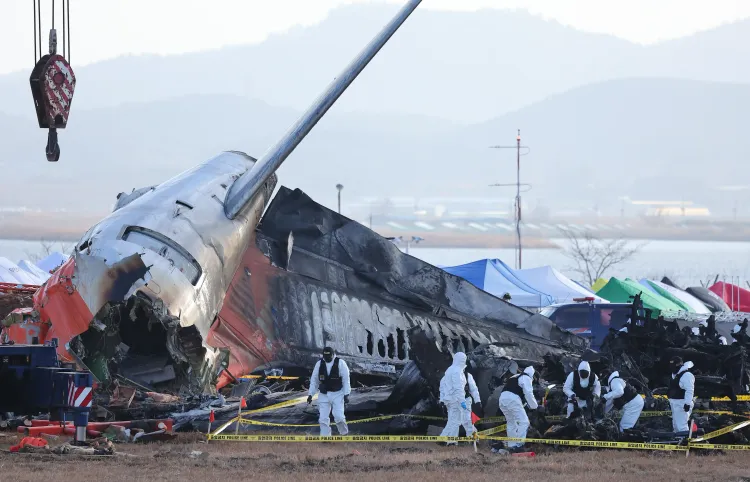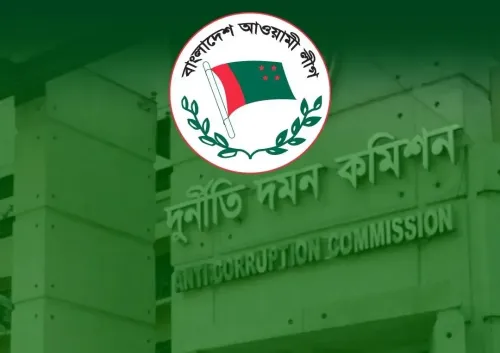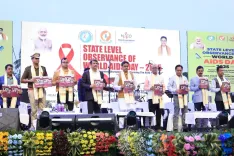South Korea: Jeju Air to Scale Back Flight Operations Amid Safety Concerns

Seoul, Jan 2 (NationPress) Jeju Air Co. disclosed on Thursday that it plans to scale back its flight operations as soon as next week in light of increasing worries regarding the safety of flights conducted by the prominent low-cost airline after this week's deadly crash.
Song Kyung-hoon, the leader of Jeju Air's management support office, stated during a press conference that the airline is preparing to reduce domestic flights as early as next week and will also adjust international routes by the third week of this month.
The recent landing gear failure of the crashed Jeju Air B737-800 aircraft on Sunday has sparked fears that the airline may have prioritized flight operations over adequate maintenance, potentially jeopardizing passenger safety, according to reports from Yonhap news agency.
The aircraft involved in the incident that resulted in 179 fatalities had completed 13 flights within the 48 hours leading up to the tragedy.
Earlier, Jeju Air had revealed intentions to decrease flight operations by 10-15 percent by March to bolster operational safety.
When questioned about a potential financial crisis due to a surge in ticket cancellations, Song admitted that cancellations have risen compared to previous times, but emphasized that new bookings are still being made.
In terms of emergency financial assistance for the victims' families, Song mentioned ongoing discussions with the families regarding methods and procedures.
"Once discussions are finalized, we will guide them on preparing the necessary documents to ensure prompt disbursement," he said.
Addressing concerns regarding possible inadequacies in aircraft maintenance, Song asserted that the company has had a substantial number of skilled maintenance technicians historically and provided opportunities for their continued employment post-retirement.
"However, the COVID-19 pandemic hindered our ability to maintain those contracts," Song explained, adding, "Consequently, there was a period when we did not meet the transport ministry's recommended standard of having 12 technicians per aircraft."










